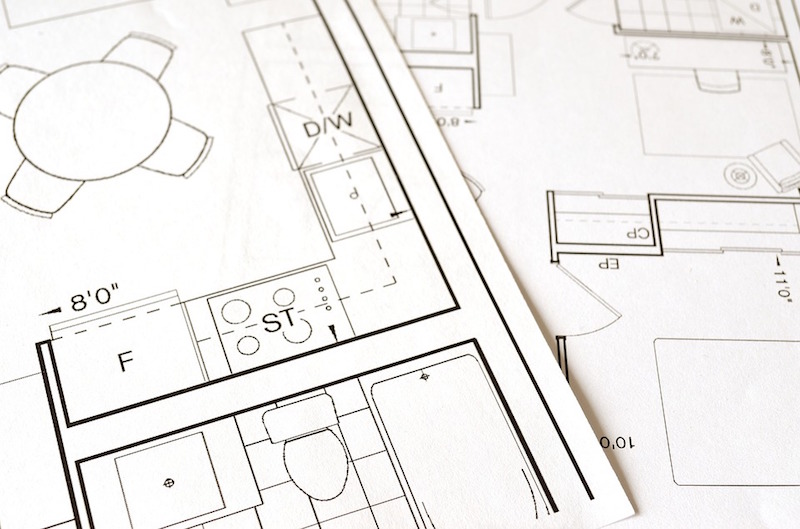The Enterprise Rose Architectural Fellowship and architect Lawrence Scarpa, FAIA, have been selected as the 2017 recipients of the Collaborative Achievement Award, which recognizes and encourages distinguished achievements of allied professionals, clients, organizations, architect teams, knowledge communities, and others who have had a beneficial influence on or advanced the architectural profession. The recipients will be honored at the AIA Conference on Architecture 2017 in Orlando.
Enterprise Rose Architectural Fellowship
Launched in 2000 by affordable housing and community development organization Enterprise Community Partners, The Enterprise Rose Architectural Fellowship is recognized for cultivating a generation of architects committed to bringing the economic, health and education benefits of quality design to low-income communities. Enterprise believes architects are a critical part of the solution to end the growing housing insecurity crisis in the U.S. which forces more than one in four renters to pay at least 50 percent of their income on their home, risking their health, education and economic mobility.
Founded with a mission to integrate ideals of design excellence within organizations that work with underserved communities, the fellowship has paired its fellows with over 75 organizations serving diverse geographies and communities. Rose Fellows, represented by the country’s finest early-career architects, are continually engaged in pressing issues and propelling the profession forward. Partnering emerging designers with community developers for three years, the fellowship is the premier career path for young architects to support public interest design. To date, the 69 fellows have created or preserved more than 12,000 affordable homes across the country. Fellows sharpen essential architectural skills while developing financing, policy, community engagement and organizing skills, as part of the fellowship's effort to develop architectural leaders who have the empathy, humility and experience to be effective community advocates.
The impact and success of the Enterprise Rose Architectural Fellowship is felt in its ability to define and influence public policy and the frameworks for the design of buildings and communities.
Lawrence Scarpa, FAIA
A unique mix of design excellence, social responsibility, stewardship, and service to the profession has defined Lawrence Scarpa’s 30-year career in architecture. In 2001 Scarpa and Angela Brooks, FAIA, co-founded Livable Places, a nonprofit policy and development organization that actively promotes affordable and sustainable communities. Comprising a cadre of developers, advocates, architects, and bankers led by Scarpa, Livable Places has played an instrumental role in a number of policy changes in California, setting the stage for transformation of the state’s communities.
In Los Angeles the A+D Architecture and Design Museum, which Scarpa co-founded, has established a keen awareness of architecture and design in the everyday life of its visitors. For the past 15 years the museum’s progressive exhibitions, youth-oriented education programs, and community events have celebrated the built environment and examined the issues surrounding it. The museum annually hosts AIA/LA’s 2x8 symposium and exhibition, which Scarpa organized and developed as a Chapter board member. The program highlights exemplary student work from architecture and design institutions throughout California.
Modeled after the Mayors’ Institute on City Design, the Affordable Housing Design Leadership Institute, an initiative devised by Scarpa and Maurice Cox, FAIA, in 2008, assembles leaders in affordable housing for a two-and-a-half-day seminar focused on innovation and best practices. Now administered by Enterprise Community Partners, where Scarpa is an advisory board member, the institute provides year-round assistance to organizations through the Enterprise Rose Architectural Fellowship program and has enabled 60 nonprofits and community groups throughout the country better their communities. The jury for the 2017 Collaborative Achievement Award includes: Illya Azaroff, AIA, (Chair), +LAB architects; Hans Butzer, AIA, Butzer Architects and Urbanism; Damian Farrell, FAIA, Damian Farrell Design Group; Jared Edgar Mcknight, Assoc. AIA, Wallace Roberts & Todd, LLC and Lynn M. Perkins, AIA, Bill & Melinda Gates Foundation.
Related Stories
Building Technology | Jun 18, 2024
Could ‘smart’ building facades heat and cool buildings?
A promising research project looks at the possibilities for thermoelectric systems to thermally condition buildings, writes Mahsa Farid Mohajer, Sustainable Building Analyst with Stantec.
University Buildings | Jun 18, 2024
UC Riverside’s new School of Medicine building supports team-based learning, showcases passive design strategies
The University of California, Riverside, School of Medicine has opened the 94,576-sf, five-floor Education Building II (EDII). Created by the design-build team of CO Architects and Hensel Phelps, the medical school’s new home supports team-based student learning, offers social spaces, and provides departmental offices for faculty and staff.
Healthcare Facilities | Jun 18, 2024
A healthcare simulation technology consultant can save time, money, and headaches
As the demand for skilled healthcare professionals continues to rise, healthcare simulation is playing an increasingly vital role in the skill development, compliance, and continuing education of the clinical workforce.
Mass Timber | Jun 17, 2024
British Columbia hospital features mass timber community hall
The Cowichan District Hospital Replacement Project in Duncan, British Columbia, features an expansive community hall featuring mass timber construction. The hall, designed to promote social interaction and connection to give patients, families, and staff a warm and welcoming environment, connects a Diagnostic and Treatment (“D&T”) Block and Inpatient Tower.
Concrete Technology | Jun 17, 2024
MIT researchers are working on a way to use concrete as an electric battery
Researchers at MIT have developed a concrete mixture that can store electrical energy. The researchers say the mixture of water, cement, and carbon black could be used for building foundations and street paving.
Codes and Standards | Jun 17, 2024
Federal government releases national definition of a zero emissions building
The U.S. Department of Energy has released a new national definition of a zero emissions building. The definition is intended to provide industry guidance to support new and existing commercial and residential buildings to move towards zero emissions across the entire building sector, DOE says.
Multifamily Housing | Jun 14, 2024
AEC inspections are the key to financially viable office to residential adaptive reuse projects
About a year ago our industry was abuzz with an idea that seemed like a one-shot miracle cure for both the shockingly high rate of office vacancies and the worsening housing shortage. The seemingly simple idea of converting empty office buildings to multifamily residential seemed like an easy and elegant solution. However, in the intervening months we’ve seen only a handful of these conversions, despite near universal enthusiasm for the concept.
Healthcare Facilities | Jun 13, 2024
Top 10 trends in the hospital facilities market
BD+C evaluated more than a dozen of the nation's most prominent hospital construction projects to identify trends that are driving hospital design and construction in the $67 billion healthcare sector. Here’s what we found.
Adaptive Reuse | Jun 13, 2024
4 ways to transform old buildings into modern assets
As cities grow, their office inventories remain largely stagnant. Yet despite changes to the market—including the impact of hybrid work—opportunities still exist. Enter: “Midlife Metamorphosis.”
Affordable Housing | Jun 12, 2024
Studio Libeskind designs 190 affordable housing apartments for seniors
In Brooklyn, New York, the recently opened Atrium at Sumner offers 132,418 sf of affordable housing for seniors. The $132 million project includes 190 apartments—132 of them available to senior households earning below or at 50% of the area median income and 57 units available to formerly homeless seniors.

















